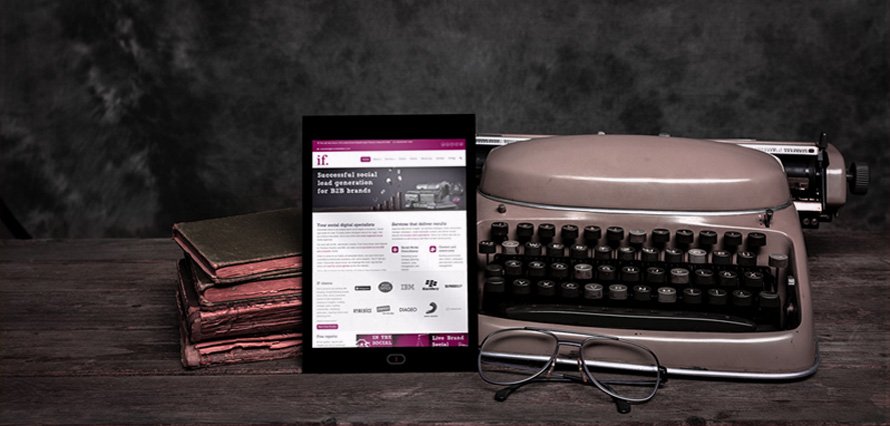February 24, 2015
 Some of the staff at Immediate Future are former journalists who have made a transition from traditional media to digital media and now to social media. Some try to forget they even used the humble manual typewriter with all that heavy industrial noise back in 1990. Seems a lifetime ago. Then came quiet Apple Mac Classics, floppy discs, PCs and the like. That was the office environment taken care of.
Some of the staff at Immediate Future are former journalists who have made a transition from traditional media to digital media and now to social media. Some try to forget they even used the humble manual typewriter with all that heavy industrial noise back in 1990. Seems a lifetime ago. Then came quiet Apple Mac Classics, floppy discs, PCs and the like. That was the office environment taken care of.
But something really big – and we mean really big – was about to happen. Enter universal usage of the internet in the late 1990s followed by the power tools of social media. Our news staff who at one time were the only outlet for breaking events around the globe have had to adapt to new media tools of Twitter, Facebook, YouTube et al and bear witness to how these are helping to report incidents, nurture public policy, and in some cases overturn old assumed systems. We live in a have-a-go society where just about anyone can be a publisher, editor or reporter.
A new way of life
While social media can be used as a tool to boost commerce and trade, it is now increasingly clear to even the cursory eye that the power tools can and are defining our entire way of life. Social media isn’t just new media. It is a way of life.
The self-expression and mutual understanding which it promotes is perhaps one of the biggest steps forward for the human race since a stroll on the moon in 1969. It is making governments take heed in a way that street marches alone cannot.
The Arab Spring of 2011 or protests in Iran are examples of how word spreads and governments are powerless to police it all. Short of jamming servers or turning off internet coverage, even a power cut would not stop many posts flying off portable devices like smartphones and tablets powered by a humble battery. And those posts have come in their droves. Comments, exclamations, and perhaps the most powerful of them all, real-time images and video, empower protestors and fuel debate and reform. Even if protestors’ efforts do not yield immediate change, there is no doubt that they are changing the way lawmakers govern, character by character.
The road from Mandalay
On a recent trip to Myanmar, one-time Burma, a new recruit of ours was able to observe first hand how change is coming to this once closed country with a suspicion of outsiders. Some international sanctions – in place since the 1990s – still remain but the country is changing and becoming more open to the world. A country reluctant to even accept international assistance in May 2008 when it faced its worst-ever natural disaster, Cyclone Nargis, is now opening up and allowing pluralism in its government.
It isn’t just the fact that a military junta has demobilised and allowed a civilian government to take over. Nor that opposition leader Aung San Suu Kyi has been freed from house arrest and is now an elected lawmaker. Some say it isn’t even economic sanctions which delivered change.
The most significant catalyst is technology and access to the internet. In the city of Mandalay, Myanmar’s second-largest population and one-time regal capital, teenagers all have the latest smartphones, messaging tools and are plugged into the internet. People of a certain age might be wary of using the new technology – or even understanding it – but students in the cities are already embracing social media and online chat, taking selfies and reading the world’s press. The country has boldly set itself upon a new course, the road from Mandalay. And is doing so peacefully. That perhaps is the greatest gift social media can give.